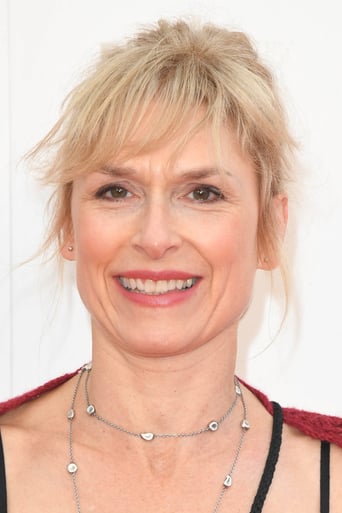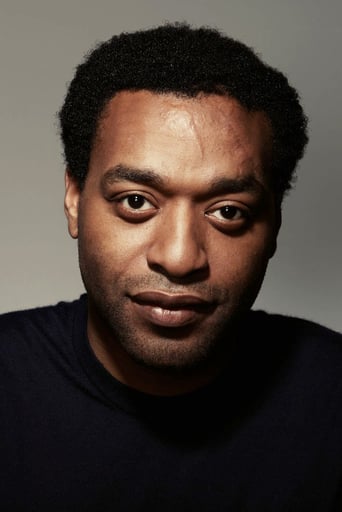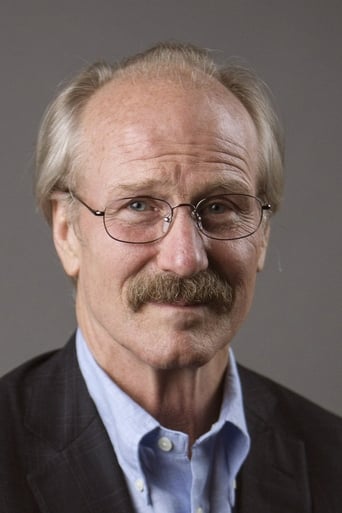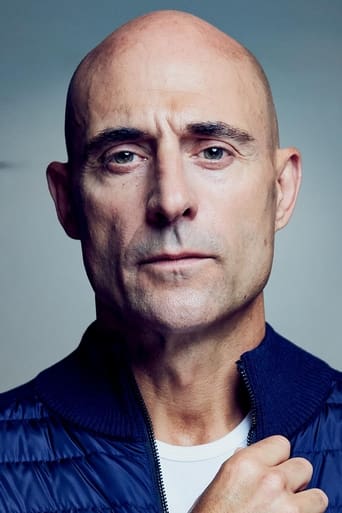Voxitype
Good films always raise compelling questions, whether the format is fiction or documentary fact.
Senteur
As somebody who had not heard any of this before, it became a curious phenomenon to sit and watch a film and slowly have the realities begin to click into place.
Rosie Searle
It's the kind of movie you'll want to see a second time with someone who hasn't seen it yet, to remember what it was like to watch it for the first time.
dallasryan
For what this movie signifies, it's very important and great on what it's representing, but the movie as a whole is pretty okay. It lacks the budget it needs to be great, but at the same time I give it a 7 because the two main leads save the film and are quite frankly, phenomenal.Those two main leads being William Hurt and Chiwetel Ejiofor. They give two powerhouse performances and pretty much save the movie from being a 5 and they're chemistry is real and pure as to when the final result comes at the end, it is touching to the viewer because of how great these two performances were as well as it's touching from the historical aspect of it too. Overall a pretty good movie.
gradyharp
ENDGAME, as written by Paula Milne and directed by Pete Travis, is a thinking person's film. The subject is the ongoing crises of the Apartheid in South Africa (here during the years 1985 - 1990, with after film commentary to 1999) and the extended secret meetings between the Apartheid regime as controlled by President Botha (Timothy West), those meetings held between the African National Congress represented by Thabo Mbeki (Chiwetel Ejiofor) with prisoner Nelson Mandela (Clarke Peters) as the heart of the blacks and the increasingly disillusioned Afrikaner Apartheidists lead by Professor Will Esterhuyse (William Hurt) convened by a British representative Michael Young (Jonny Lee Miller) acting as spokesman for his entrepreneurial boss Rudolf Agnew (Derek Jacobi) of a major British industry vested in South Africa. The talks are wired by Botha's intelligence officer Dr. Niel Barnard (Mark Strong) and level of intrigue is high. The message of the film is the struggle and final victory of democracy and the end of Apartheid in South Africa, and while the cerebral discussions by this fine group of actors is illuminating, the film gains its power from fast shots of the conditions in South Africa at the time, including rioting, terrorist acts, loss of families, and the ever present intrigue and danger surrounding those men attending the secret meetings. The supporting cast (especially John Kani as Oliver Tambo, the venerated life long friend of Mandela) is exceptionally strong, but in the end it is the unexpected fine acting of William Hurt and the always excellent Chiwetel Ejifor who remind us how small scaled dramas can have far more impact than the big epics we are used to enduring. This film is especially excellent for informing the public about the ins and outs and meanings of the South African Apartheid and why the ending of that evil regime lighted the fuse for so many other important sociologic changes. Grady Harp
dbborroughs
Story of the negotiations that brought an end to Apartheid in South Africa. Very good film with a great performance from Jonny Lee Miller, who is complimented by saying"It takes a great man to change the world and remain in the shadows". Miller plays the man who makes it all happen so all of the bigger names can get together and agree to change things. I liked the film, but on a certain level its a bit too much news footage like. Its emotional and touching and tense but there is also a certain amount of distance. too much if you ask me and I was never completely gripped. Still its worth a look if you want to see what it took to change a country.
Framescourer
Well-scripted and cast this made-for-TV drama would have to work hard to be ineffective. William Hurt, as a liberal Afrikaner university professor Esterhuyse bosses the drama. Thrown inbetween the ANC and Botha's implacable government as a way of coaxing talks into life he also has to withstand the insidious advances of insiders with other agendas. Chiwetel Ejiofor's Mbeki is an earnest character here but for reasons either of performance or historical reproduction he seems strangely marginal. Much more impressive is the (scarily similar) Mandela of Clarke Peters, played as a graceful man two steps ahead of whatever game he's introduced to.There's a host of other cameos - I particularly liked Timothy West's Botha - which fill out the story. It's a competent production, albeit fighting an occasionally losing battle with period detail in central London (21st century buses and entryphone systems in 1985). Somerset looks beautiful too. It can be a bit cursory with the dangers a bit - the stakes that the 'players' face - but there's a lot to cram in. Above all one gets the sense of men trying to resolve things with a decorousness that must be the example for the ensuing national democracy. Stirring stuff. 7/10





